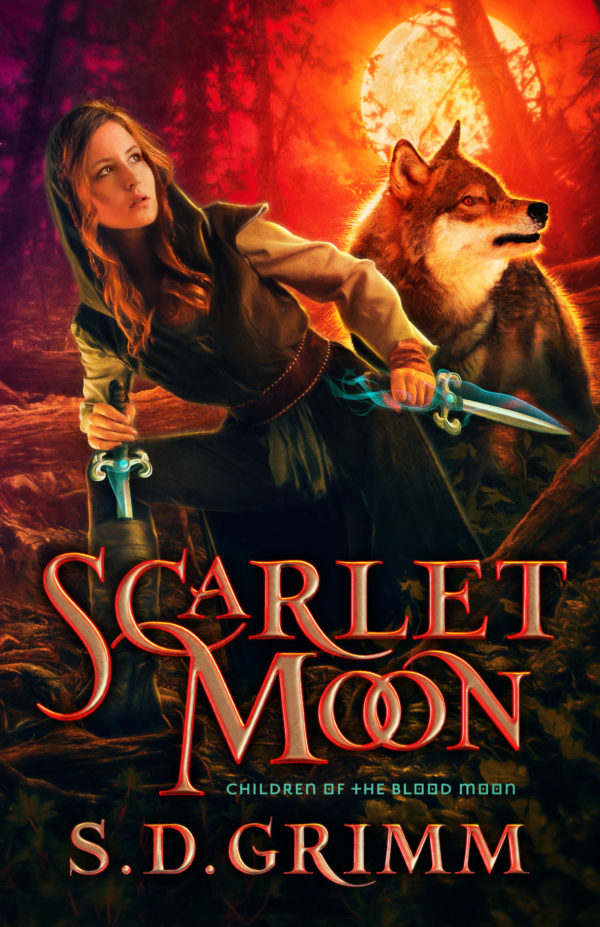Today I am opening myself up for criticism from anyone who knows me well and could identify the times I spoke or wrote about something when I had no idea about what I was communicating.
The blogger’s curse…to fill space, we venture into uncharted territory.
I confess starting to write a post for this agency’s blog and getting halfway through before realizing I had no idea what I was talking about. At least a half-dozen times in the last 3+ years I’ve written something and then deleted it in it’s entirety before finishing, not because it wasn’t true or maybe even helpful, but because I was the wrong person to write it.
Once, I started writing about the myriad of writing-environments in which an author works. It was really going great, but then, I realized this was something best written by others in this agency who have actually written books and understood the artistic process better than I.
Delete.
So now, before I start a particular blog, I test the concept by asking, “Am I qualified to write this?” Sometimes the answer is no.
With social media and self-publishing, we are living in the age of uninformed and unqualified opinion being distributed for the whole world to read.
Because everyone in the world now has access to mass media, a virtual blizzard of opinion is made available where the originator had little or no knowledge beyond their own thoughts and Google.
It has the effect of “poisoning the well” for qualified communicators.
Credibility is important. I’ve covered this general theme before in the post “The Credibilty Gap” but the topic bears coverage again and again from various angles because the problem is so pervasive.
This issue for writers is particularly troublesome.
Writers of certain types of fiction who have first-hand or substantial knowledge of a geographic area or historic period are driven crazy by those who obviously learned everything they know from Wikipedia.
Those who have a long-standing marriage ministry or people who have been married for a long time see marriage books from authors who have been married for two years. Maybe wait for your twentieth anniversary for the book.
Then there are parenting books from someone with one small child or no children at all. Yes, Biblical principles are available to everyone. But trust me, parenting skills and insight when you are outnumbered and sleep-deprived are different than anything you can imagine. Wait until they are grown and you have some perspective developed over time.
Some write books they are not qualified to write and do it successfully. They are called co-authors. A good writer joins together with a highly qualified person and the sum of the parts is greater than it would have been if they had written separately.
So, how do you avoid writing something you are unqualified to write?
- Make sure you know what you are talking about before you start writing.
- Ask yourself this question, “How many years have I spent learning and studying this?” The answer should be plural years, preferably in double digits. Books are a result of deep knowledge and familiarity, not casual reading plus the Internet. Facebook is meant for something you just learned this week.
- Ask yourself if those around you would be surprised by your book topic. If they don’t believe you are an expert, you probably aren’t. “Hey Frank, I had no idea you knew so much about nuclear power! Imagine that, someone from the accounting department!”
- In the midst of writing, be humble enough to stop when you realize you are in over your head. Every successful author has a drawer full of material they never intend to show anyone. If you don’t have anything, you haven’t written long enough.
The theology issue for Christian writers is a tricky one. There is an understanding of theology anyone can understand and comment on. If you have no formal theological training, stick with the “anyone can understand” stuff. Leave the explanation of the Trinity, predestination and Revelation for the experts.
So, another post reminding authors to be humble, realistic and pliable when writing. You’d think I’d run out of saying the same thing over and over.
Won’t happen.



 The Work of a Cover Designer
The Work of a Cover Designer

Dan, Good advice, and valid no matter how many times it’s given. As you point out, a lot of the problem stems from today’s ready access to social media. And, as Abraham Lincoln wrote, “It has to be true, because it’s on the Internet.” Thanks for posting.
Dear Dan: Charming and true–all at the same time. Thanks for sharing.
Jacqueline Gillam Fairchild–author: Estate of Mind
Her Majesty’s English Tea Room
Good reminder for us fiction writers. Makes me question whether I’ve spent enough time with my newest characters to be qualified to write about their lives!
Dan,
Thank you for this excellent post. In this opinionated world, it is easy to take any advice from anyone. One of the keys from my view is to test it and often take it with a grain of salt. I learned this the hard way as a new writer going to my critique group. I did not take every suggestion–but I did listen to the suggestions and it often spurred other improvements.
Terry
The Writing Life
Excellent. The word authenticity comes to mind. Writers have a serious obligation to be truth tellers and genuine in what they offer. Your article gives me pause. Thanks!
Funny….you know I was just thinking this morning about how cyclical this parenting thing is. My children are all over 18, and although two still live with us we are mostly empty nesters…until the puppies started showing up. 🙁 we find ourselves as we did about 14 years ago when our boys…now puppy parents…we’re running wild and making us crazy…now here we are with two puppies, who by the way, are remarkably similar to their daddies, shaking our heads eyes wide like a deer in headlights. Deja vu!!
Great post, as always, Dan. Yes, we need to ask ourselves if we are qualified to write on our topic. I need to figure out the many ways this applies to my fiction writing. Getting to know my characters, the things in my story (ballroom dancing, amnesia, laying wood floors, various occupations…). I need to make sure I’m writing from a place of knowing, as much as possible, rather than guessing and hoping I get it right. 🙂
Good points! I’ve known (or known of) several people who wrote books about how to be a wonderful parent when their kids were young, but later those kids became juvenile delinquents. Thanks for sharing this.
Janet, I did give greater weight to the advice from parents whose kids had turned out well, but I wouldn’t say what that book taught was wrong without reading it. It might have been spot on.
I have a friend who raised four kids the same, and they “should” have turned out well. Three turned out great while the other got into lots of trouble as a teen. Once a child hits the teens, free will kicks in very strongly. A parent can do everything “right,” and their children might still choose to follow their friends’ idea of what is right instead of what they were taught.
We can prime the pump with every good and godly thing we can think of, but as they transition to adulthood, they might choose a different path.
Franklin Graham went through a very wild period, but he turned back to what he’d learned when young. Just look at what God is doing with the former lost child! It gives every parent of a straying child hope for the prodigal’s return.
Carol, I agree. No parent can determine how their children will turn out. God gives us all free will. As the old saying goes, When all you can do is all you can do, then that’s all you can do.” All any of us can do is our best.
Yes. So true. As a mom of 8 children ages 11-33, 5 of whom are adopted, it drives me crazy to see a parenting book by someone with one perfect child or an adoption book by someone who privately adopted a newborn. That’s only one kind of adoption. Try carrying four-year-old twins who want nothing to do we you through an airport at 1:00 a.m.
I agree, Kathy. We adopted two babies (6 days and 2 months old) who are now in college, and raising them was essentially like raising kids we’d made ourselves. About the only thing different was I did (still do) always introduce them as my “son Paul” and “daughter Lydia” to avoid a stranger’s confusion. (We’re an Anglo/Hispanic/African American mixed set.) I joke that the biggest difference is that I wasn’t exhausted when we brought them home, and I only suffered writer’s cramp from signing paperwork rather than labor pains. The adoption decrees are even court orders that explicitly state that they have duties toward us as parents!
Dan, thanks for another thought-provoking post.
I’d like to raise a question for us all to consider. What really makes a person an expert in topics related to God? I’ve read many things written by seminary-certified “experts” and denominational leaders that were full-blown heresy.
The Doctor of Theology degree is a research degree in theology. Does that mean what the Th.D. person writes reflects the reality of God any more than the writings of a devout follower of Jesus who really knows the Savior? I’m skeptical because I know the limitations of what any doctorate means and the requirement to come up with something totally new for the doctoral thesis. (I have a Ph.D.in a science field myself, so I’m not anti-academic. I just know it means “piled higher and deeper” sometimes.) How does a person do academic research on God, anyway?
Here’s an example where the “non-theologian” might bring greater understanding of a difficult theological concept. Remember when you learned in high school physics class that light behaves like both particles and waves at the same time because it really was both an electromagnetic wave and individual “particles” called photons? Louis de Broglie’s Ph.D. thesis put forth a fundamental concept of quantum mechanics in 1924 when he proposed the wave nature of electrons and suggested that all matter (which is made up of particles) has wave properties. After the wave behavior of the electron was shown in the lab i 1927, de Broglie got the physics Nobel Prize in 1929 for discovering wave-particle duality. The electron microscopes that let us take pictures of things too small to see with visible light use the wave behavior of electrons.
How many seminary theologians would be able to write about how wave-particle duality is a type for how Jesus could be both fully human and fully God at the same time? (I know a couple, but they both had Ph.D.’s in scientific fields before getting their professional ministry credentials.)
Or about how being eternal doesn’t mean you have an unlimited amount of time? That time is just one of the (probably) 10 dimensions of the universe? Time and space were created simultaneously by God from nothing, and “eternal” means you exist outside the space-time universe we humans live in right now.
Or the theological implications of only one of the two mirror-image versions of biomolecules being used in all cells for what (Who) got life started?
Right now, I’m writing historical fiction about difficult friendships growing into love coupled with the spiritual transformation of one of the protagonists to find faith in Christ. My new author site at carolashby.com is built as a Roman history site for teachers, homeschoolers, and others interested in the time period. It’s fueled by all the research I’m doing to be as historically accurate as possible. I won’t be discussing wave-particle duality as a type for Jesus there, but I feel called to develop a “science and theology” site where I can share what I’ve learned of both science and God to lead skeptics toward Him. What God calls us to, He equips us for.
First, I love the title… but that’s simply my opinion.
Great column. I recall as a young pastor thinking it would take forever to gain the experience (i.e. rack up the years) that would afford me the credibility I thought my knowledge and wisdom already deserved.
In retrospect, it is amazing to consider how all of the varied experiences, places and people have helped re-shape me over the years. (Thanks to the Holy Spirit, the “re-shaping” has been a good thing.) As for your illustration about parenting books… I almost feel qualified after raising three godly kids and having eight wonderful grandkids, to consider writing something on the subject. Almost.
Dan, my favorite high school teacher used to say “always heed the ancient law and never write what you ain’t saw.” Good, though not grammatically correct, advice.
Love it the poetry of it, Sheri, even if it is restricted to novels set within the last 60 years on planet Earth.
Great post, Dan. One that is badly needed in this day of universal access to publishing venues. Thank you.
Not all opinions are valid … and some bloggers can’t even get their facts right.
I think this is fantastic advice! Composing blog posts can be tricky, especially when we do it based off of feelings rather than knowledge. I like to post about writing fiction, ideas on faith, and life in general. My blog is pretty random because that’s what represents me well! I do however always try to ensure that I am not speaking as though I am an expert on a subject if I am not so. I feel like making it clear that somethings are just ideas or opinions can not only save credibility but protect the reader from misunderstanding or thinking they are taking advice from an expert. Judging from the comments here, it doesn’t seem you’re getting quite the backlash and criticism you expected. Good post!